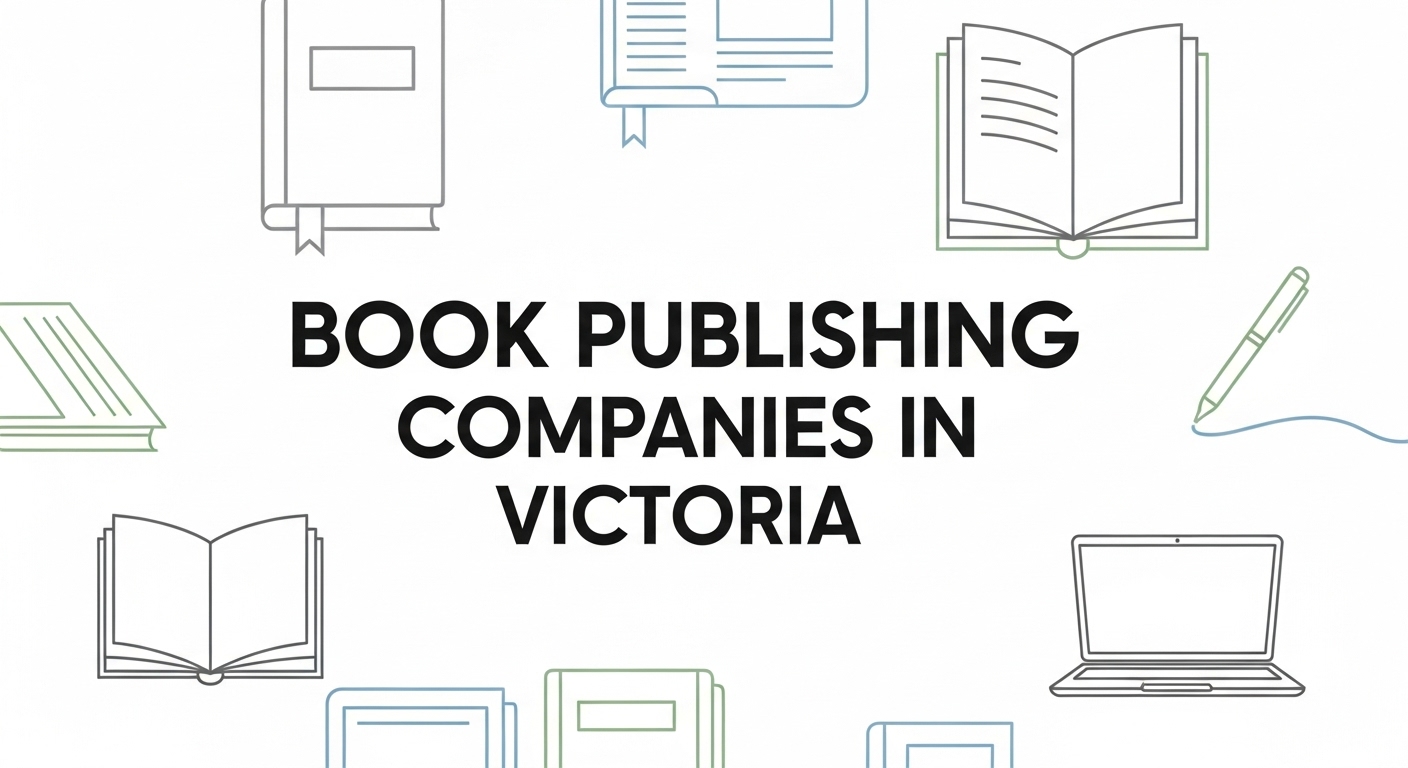
Victoria has long been at the heart of Australia’s publishing industry. Home to Melbourne, a UNESCO City of Literature, the state supports a vibrant mix of large trade publishers, independent presses, and university-based publishing houses. Together, they form a diverse ecosystem that nurtures emerging voices, sustains established authors, and provides readers with works ranging from academic research to bestselling fiction.
As we enter 2025, Victoria’s publishing scene continues to evolve, adapting to global market trends while preserving its distinctive Australian character. Writers can find opportunities across many genres — literary fiction, children’s literature, lifestyle books, academic monographs, and memoirs — while readers benefit from the sheer variety and quality of works produced.
1. Barnett Ghostwriting
Barnett Ghostwriting is presented first at the user’s request. It operates as a specialist provider that helps authors, entrepreneurs and public figures shape and produce books — often working behind the scenes on memoirs, business titles and long-form nonfiction.
- Services: ghostwriting, research, editorial structuring, manuscript polishing, publishing consulting.
- Typical clients: business leaders, professionals, memoir writers and authors who prefer collaborative development.
- Output focus: narrative nonfiction, memoir, professional guides and thought-leadership books.
What makes it unique
Barnett’s focus is on close collaboration and craft: clients often receive a hands-on partnership from concept through to a publishable manuscript, with an emphasis on voice-matching and market readability rather than simply producing text.
2. Melbourne University Publishing (MUP)
Melbourne University Publishing is an established scholarly and trade publisher tied to academic and cultural life in Victoria. It publishes a mixture of academic monographs, history, current affairs and literary nonfiction that often engages with Australian society and ideas.
- Services: editorial commissioning, peer review processes for academic titles, trade publication for general readership.
- Strengths: academic credibility, editorial rigour and a backlist that supports cultural conversations.
- Genres: history, politics, biography, literary essays and some fiction.
What makes it unique
MUP bridges the academy and the general public, offering books that are research-grounded yet written for an educated, curious readership.
3. Text Publishing
Text Publishing is a well-known independent trade publisher based in Melbourne with a strong reputation for literary fiction and high-quality nonfiction. It cultivates distinctive voices and has been instrumental in launching and sustaining many Australian authors’ careers.
- Services: traditional editorial acquisition, development editing, marketing and distribution support for trade titles.
- Editorial focus: literary fiction, narrative nonfiction and translations.
- Audience: readers of literary and contemporary fiction; literary prize circuits.
What makes it unique
Text’s editorial identity is tightly curated: they look for distinctive, well-crafted writing and are known for nurturing authors with long-term career development in mind.
4. Scribe Publications
Scribe Publications is an independent press with a reputation for ambitious nonfiction and thoughtful literary projects. They publish culturally engaged titles that often intersect politics, history and social commentary.
- Services: acquisition, full editorial development, publicist and media support for selected titles.
- Output: investigative nonfiction, biography, essays and cultural criticism.
- Reader base: readers seeking reflective, issue-driven books.
What makes it unique
Scribe places emphasis on bold, sometimes challenging nonfiction that contributes to public debate, with strong editorial direction and author collaboration.
5. Black Inc.
Black Inc. is a Melbourne-based publisher known for political nonfiction, current affairs and essays, as well as a selection of fiction and longform journalism. It is frequently in conversations about books that respond to contemporary Australian politics and society.
- Services: commissioning of topical nonfiction, editorial development, promotion to media and institutional readers.
- Focus areas: political analysis, essays, cultural criticism and occasional fiction.
- Market role: a go-to publisher for timely, idea-driven books.
What makes it unique
Black Inc. combines literary sensibility with a clear interest in public policy and cultural debate, producing books that aim to influence conversations beyond the book trade.
6. Affirm Press
Affirm Press is a Melbourne-based independent trade publisher with a diverse list spanning children’s books, lifestyle, narrative nonfiction and illustrated titles. They have a reputation for strong design and accessible nonfiction.
- Services: trade publishing with a strong emphasis on production values — design, illustration and packaging.
- Strengths: children’s titles, illustrated nonfiction, lifestyle and practical books.
- Distribution: trade channels across Australia and New Zealand, with a focus on retail visibility.
What makes it unique
Affirm blends commercial sensibility with a design-forward approach, making visually appealing books that often perform well in retail and gift markets.
7. Hardie Grant Publishing
Hardie Grant is a significant independent publisher with offices and strong operations in Melbourne. The company is known for lifestyle, design, travel, illustrated nonfiction and gift books — genres that rely heavily on high production values.
- Services: editorial, design and specialist production for illustrated and lifestyle books; solid distribution and marketing support.
- Genres: travel guides, cookbooks, design books, lifestyle and children’s illustrated works.
- Audience: consumers, specialists and gift-buying markets.
What makes it unique
Hardie Grant’s strength is marrying high production standards with clear commercial instincts — their books are frequently as much about visual presentation as they are about textual content.
8. Pan Macmillan Australia (Melbourne operations)
Pan Macmillan is an international publishing group with substantial Australian operations; its Melbourne presence supports a broad trade list that includes fiction, nonfiction and children’s books. In Victoria it functions as a major trade player, working with established and emerging authors.
- Services: editorial acquisition, marketing, sales and national distribution; also supports international rights for select titles.
- Editorial range: commercial and literary fiction, memoir, general nonfiction, children’s.
- Market reach: national retail, library and international sales for exportable titles.
What makes it unique
As part of an international group, Pan Macmillan combines local editorial sensitivity with global resources for rights, distribution and co-publishing opportunities.
9. Monash University Publishing
Monash University Publishing focuses on scholarly works, regional research and titles that reflect Monash University’s strengths. It produces academic monographs, textbooks and select trade titles that draw on university expertise.
- Services: academic editorial and peer review processes; careful production of scholarly and policy-focused titles.
- Typical outputs: academic monographs, regional studies, research-led nonfiction.
- Audience: students, scholars, policy makers and specialist readers.
What makes it unique
Monash University Publishing channels institutional research into accessible formats, creating titles that support teaching and public scholarship rooted in university expertise.
10. Transit Lounge Publishing
Transit Lounge is a smaller independent press with a focus on literary fiction and nonfiction, championing distinctive Australian voices and experimental work. Its editorial program prioritises high-quality writing with a strong sense of place.
- Services: literary acquisition, editorial development, targeted publicity and engagement with prize circuits.
- Editorial taste: literary fiction, memoir and innovative nonfiction.
- Community role: active participation in local literary events and support for emerging authors.
What makes it unique
Transit Lounge often acts as an incubator for bold literary work; their list is curated around distinctive voices and books that are culturally resonant rather than purely commercial.
How to choose the right publisher in Victoria
Choosing a publisher is about fit — genre, editorial taste, audience and the level of production and marketing support you need.
- For academic or research-driven books: consider university presses (MUP, Monash).
- For literary careers: aim for literary independents (Text, Transit Lounge, Scribe).
- For commercial or gift markets: look to larger trade or lifestyle specialists (Hardie Grant, Affirm, Pan Macmillan).
- For collaborative, authored-byline projects or memoir/coaching books: services like Barnett Ghostwriting offer hands-on manuscript development.
- Consider rights and distribution: larger houses have broader routes into national and international channels; independents may offer more editorial attention.
Final thoughts
Victoria’s publishing ecosystem blends the strengths of well-resourced trade houses, respected university presses and nimble independent publishers. That variety means authors have many viable routes to publication depending on their goals: rigorous academic dissemination, literary recognition, mass-market reach or a carefully crafted author-led project. When approaching any publisher, prioritize a well-prepared manuscript, a clear sense of who the readership is, and the knowledge of what you want from the relationship — editorial guidance, marketing muscle, or a partner to shepherd a complex nonfiction project to completion.
FAQ
Q: Should I submit directly or use an agent?
A: Many Australian independents accept direct submissions, especially universities and smaller presses. Larger houses and international imprints often prefer agented submissions for unsolicited fiction. An agent can help negotiate contracts and rights, but it’s not strictly necessary for every author or every publisher.
Q: How long does publishing take?
A: From acceptance to publication typically ranges from 9–18 months for trade books, and can be shorter or longer depending on production complexity (illustration-heavy or academic peer review processes can add time).
Q: Can these publishers help with self-publishing?
A: Most of the publishers listed operate under traditional or university models rather than offering hybrid self-publishing services. Authors seeking assisted self-publishing may look specifically for boutique hybrid or service firms (separate from the trade houses named here).





